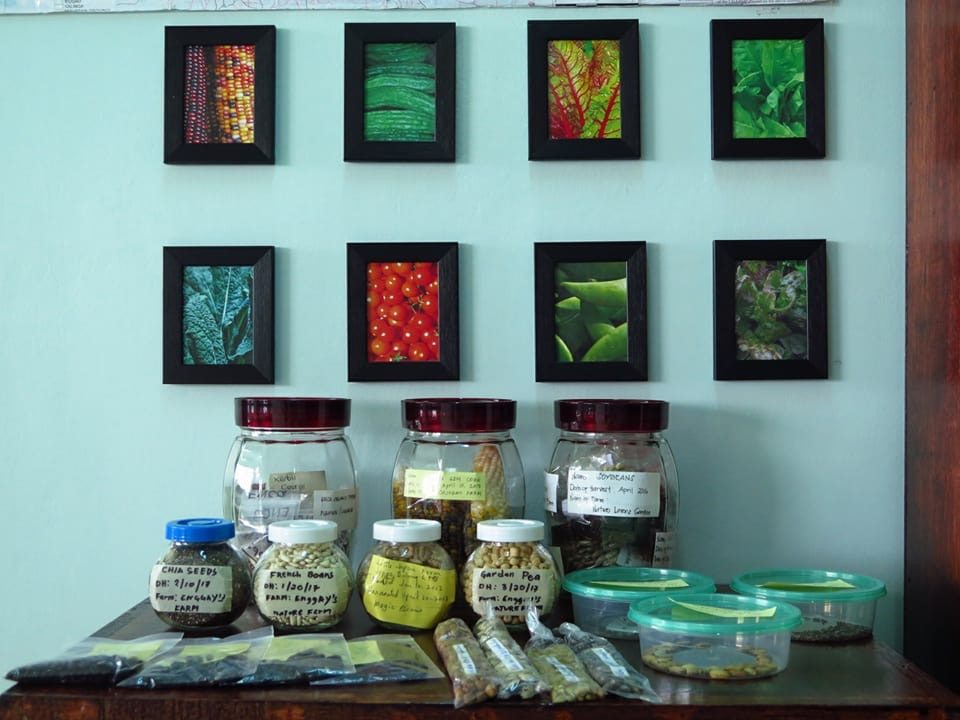BASS work is guided by the Ibaloi word “Aduyon”—the practice of mutual help and reciprocal work—with the hope that communities can continue to rely on the strength of farmers and that farmers can count on the support of the communities they feed.
The project has the following three main target objectives: First is to ensure that seeds, endemic to the Benguet area, are identified and saved for conservation. Second, is to make sure that BASS members, by virtue of the practice of Aduyon, are equipped with the skills they need to ensure the ancient practice of saving and storing seeds are kept alive by members of the community. Finally, transferring knowledge to more farmers who are part of the ethnolinguistic Indigenous Peoples groups in Tublay, Benguet, Philippines.
These three main target objectives were set in place because each one contributes to ensuring that cultural practices and connections to the land are not lost. So many global problems, especially in terms of food security and the environment, stem from having forgotten or blurred the lines of connection to nature. They also adhere to the spirit of Aduyon, or mutual help. It is interesting to note that among the major Philippine languages, the virtue of coming together, or mutual aid, have similar meanings: “Aduyon” in Ibaloi, “Bayanihan” in Tagalog, and “Pagtambayayong” in Bisaya. This project will embody this virtue that was once common to most ethnolinguistic Indigenous peoples of the Philippines.
The activities in this project include but are not limited to educational training for farmers, seed identification and trials, transfer of knowledge by farmer-led exchanges, and an output of the results, which will include educational and reference materials.
There are sub-activities under each major activity:
- community assessment
- focused group discussions
- meetings
- farm visits to check plant progress
- creating spaces for interaction and camaraderie
- surveys
- digitizing information
- sharing of the findings from the project with the wider community
The pandemic has highlighted the need for redundancies in food supply chains in the Philippines. Because of this, people everywhere, even in urban areas have found that having their own edible gardens is key to survival.
This project is very relevant because it helps to bring forward endemic food crops to the forefront. Doing this means that people will have the option to choose between an unsustainable colonial rooted diet and restoring Indigenous (more healthy) food crops and practices. Because these crops are in their natural habitat, there wouldn’t be as much need to use soil-life killing pesticides, herbicides, and weedicides. This project is also a good opportunity to find the best climate-adapted crops that can be easily and sustainably produced through whatever disaster or calamity.
BASS members firmly believe the projects they are part of can and will yield the best long-term results for numerous people in the most sustainable way possible.
The best outcomes would be:
- farmers’ independence from big agrochemical companies
- preservation of cultural practices
- conservation of biodiversity
- re-introduction of more Indigenous food crops into the local diet
- healing of community connections to the land
Based on our work in the last three to four years, it is obvious that saving seeds is a big factor in recovering after calamities, contributing to farmers’ income, and bringing people together in the spirit of Aduyon. This work changes not only farmers’ lives but the lives of the people they provide sustenance for. Farmers are some of the most generous people in the locality, who continuously learn and benefit from each other.
Direct beneficiaries of the project are the twenty active members of the Benguet Association of Seed Savers (BASS), belonging to various ethnolinguistic Indigenous Peoples groups in the Cordillera Mountain Region of the northern Philippines. Each member is a small land-holder farmer committed to preserving and restoring Indigenous seeds of the region.
This project embodies the hope that reconnects humans with nature, bringing back the sacred and noble practices, and the ability to survive through the toughest of times. It is important for the world to know, through this project, that seeds should be in the hands of farmers and seed keepers, not in the hands of big agrochemical companies. Our good friend and mentor, Bill McDorman said, “To have diversity, you have to have community. No top-down institution can do that.”
We have always believed that letting our light shine allows other people to do the same.




